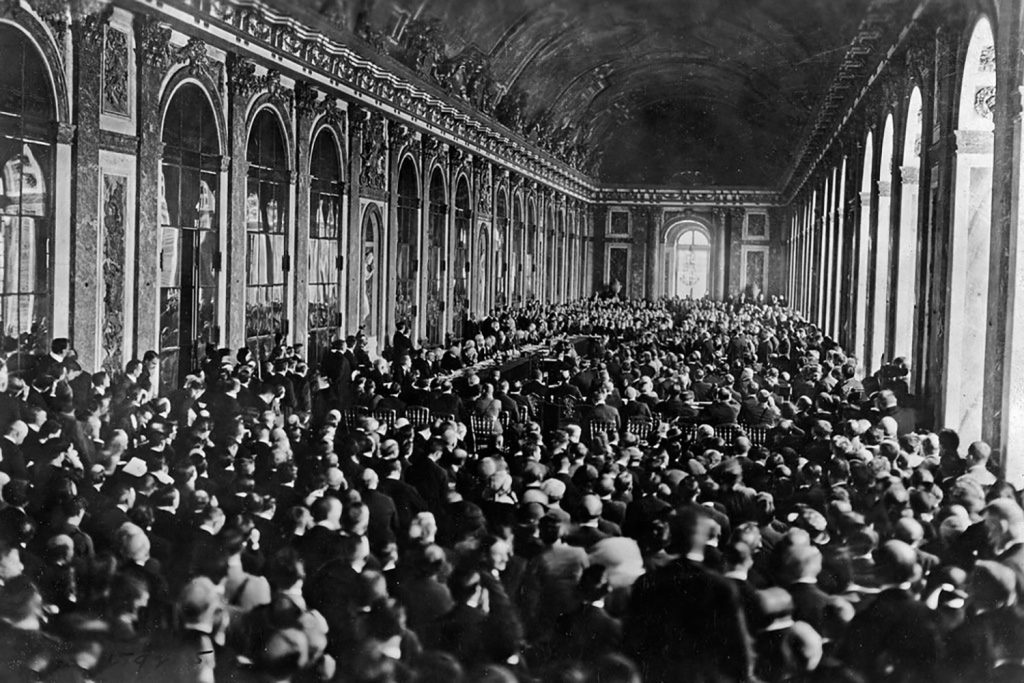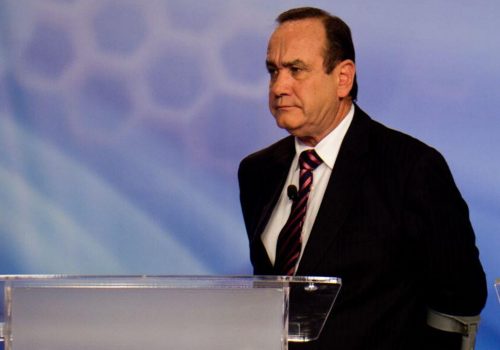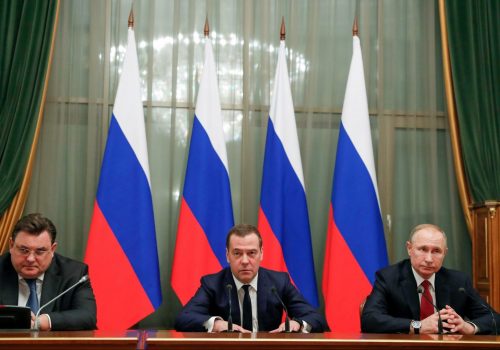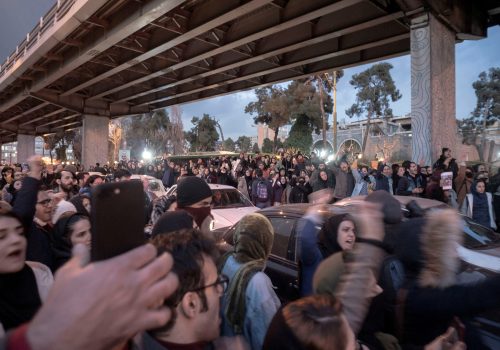A century ago this month, the Treaty of Versailles went into effect, bringing World War I to an end. Yet the dreams that paved its way were already evaporating. Among them was U.S. President Woodrow Wilson’s vision of “a world made safe for democracy” and his hope that the League of Nations would emerge to prevent future conflict.
As world leaders gather in Davos next week at the dawn of the 2020s, they confront a similarly decisive historic moment and a comparable set of dashed hopes. One can hear the haunting echoes from the 1920s: a U.S. isolationist temptation, bitter European disunity, and growing nationalism and populism within democracies amid rising authoritarianism.
As with the end of World War I, the Cold War’s end in 1989 spawned premature declarations of democracy’s triumph. In his 1992 book The End of History and the Last Man, Francis Fukuyama suggested that with Soviet collapse humanity had reached “the end-point of mankind’s ideological evolution and the universalization of Western liberal democracy as the final form of human government.”
What world leaders coming to Davos know is that history’s course is up for grabs again. Major power competition is heating up, inflamed by a systemic contest between democratic and state capitalism. The world is awash with uncertainty about how new technologies and rising environmental threats could remake our world. The international order of rules and institutions that the U.S. and its partners constructed after World War II is faltering and ill-equipped to navigate these challenges.
In the World Economic Forum’s program notes, it writes: “There are 193 sovereign nations, a proliferation of regional centers of power, and one increasingly obvious fact of life – we’re all in this together… We need to move from geopolitics and international competition to a default of consummate global collaboration. Nations are going to have to change.”
But what if, far more likely, they don’t?
“Those who cannot remember the past are condemned to repeat it,” wrote the philosopher George Santayana in 1905. The silver lining of World War II’s devastation was that chastened American and European leaders, having witnessed the mistakes of Versailles, did a far better job than their predecessors in shaping the future. For example, Wilson’s young assistant secretary of the Navy, Franklin Roosevelt, had become President, and isolationist arguments drowned at Pearl Harbor.
Get the Inflections Points Newsletter
Subscribe to Frederick Kempe’s weekly Inflection Points column, which focuses on the global challenges facing the United States and how to best address them.
The challenge facing today’s leaders in Davos is they must navigate the world to a better place without personal memories of failed settlements or the world spanning catastrophes that resulted, and can again, from lack of common cause.
Mussolini’s boast in summer of 1932 that “the liberal state is doomed to perish” has its echoes now in Vladimir Putin’s declaration this year, the “so-called liberal idea has outlived its purpose .”
It took a catastrophic war with millions of dead, followed by a half century of ideological competition between liberal democracy and communism, to prove Mussolini wrong. What will it take this time to answer Putin, and his ilk, following the constitutional change he proposed this week to ensure he can stay in power as long as he may want?
One can only hope that democracies regroup, finding a means of peaceful coexistence and competition with China, Russia and others. Can they agree to rules and remake institutions in a manner that doesn’t surrender fundamental values? Perhaps the best outcome would be an extended contest over time, decided in degrees and not through geopolitical catastrophe.
For those keeping score at this year’s Davos, here are just three questions, among many others, worth asking about this epochal drama.
WHAT IS THE STATE OF U.S-CHINESE RELATIONS FOLLOWING THIS WEEK’S TRADE AGREEMENT?
When President Trump speaks in Davos on Tuesday, even as his Senate impeachment trial begins, he’s likely to make much of his Phase One trade agreement signed this week.
However, despite this “ceasefire,” the two most decisive countries for the global future will continue to grow apart politically, economically and technologically. Though financial markets have been calmed, the more significant story is this decoupling.
A recent Atlantic Council delegation in China found that many Chinese experts and officials welcome the U.S. trade war and technology transfer restrictions as they are spurring China toward greater self-sufficiency.
“Beijing is accelerating its drive for technological ‘autonomy,’” Yuan Yang wrote in a sweeping Financial Times analysis yesterday, “to boost its control over its own supply chain in the face of political risks, such as further US embargoes.
CAN THE UNITED STATES AND EUROPE AVOID NEW TRADE WARS – AND FIND COMMON GROUND REGARDING IRAN?
The good news is that the United States, the European Union and Japan this week proposed new global trade rules for the World Trade Organization, clearly aimed at China, that would curb state subsidies that are distorting the world economy.
The bad news is that the Trump administration continues to consider escalating its trade conflict with Europe when instead it should be forging a new trade and investment agreement.
The transatlantic relationship has been at the core of one of the longest periods of relative peace and prosperity over the past seven decades. It’s time to refocus U.S. and European efforts at recharging those ties.
One good place to start might be Iran. One good outcome from rising U.S.-Iranian tensions could be that Iran’s steps to break out of its nuclear agreement could trigger closer cooperation between Washington and its European partners to constrain those activities and seek new talks.
COULD THE AUSTRALIAN FIRES SHOCK THE GLOBAL COMMUNITY INTO THE SORT OF COMMON CAUSE THAT DAVOS PROMOTES?
“Welcome to a world in which climate change’s economic impact is no longer distant and imperceptible,” writes Greg Ip of the Wall Street Journal. “Climate has muscled to the top of business worries.”
And Davos-regular Laurence Fink, the chairman and CEO of the world’s largest asset manager BlackRock Inc., said this week that climate issues would be a key driver in how he invests more than $7 trillion of his clients’ money.
Yet even as fires burn a patch of Australia the size of Belgium, it’s going to be politicians more than business leaders who have the biggest levers for change. For all the rising climate rhetoric, emissions continue to increase, and heat rises.
A century ago, the failure of global leaders to foresee and head off future risks ended in the flames of WWII and the Holocaust. Once again, the cost of failure will be paid on a global scale.
This article originally appeared on CNBC.com
Frederick Kempe is president and chief executive officer of the Atlantic Council. You can follow him on Twitter @FredKempe.
Must-reads from a world in transition
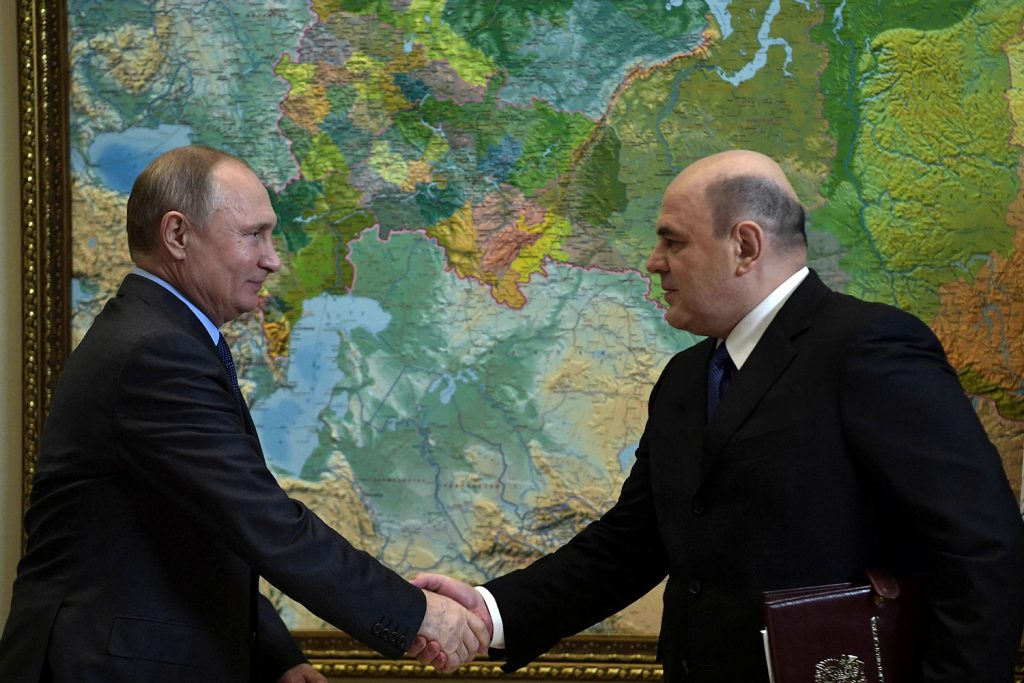
This week’s top reads provide a reading list for Davos and touch on a heavy few days of news including the U.S.-China Phase One trade deal, Putin’s proposed constitutional changes, and the start of the US Senate’s impeachment trial.
The top stories below look at why the US-China truce won’t do much to alter a generational competition and Tom McTague’s intriguing look in the Atlantic at how Iran may offer an unexpected “Trumportunity.” Meanwhile, Martin Indyk in the WSJ reflects on the diminishing importance of the Middle East for US interests.
Don’t miss the New Yorker’s Masha Gesson on Putin’s latest move and the FT’s rare interview with Angela Merkel on how history’s challenges require more EU. This week’s must-read comes from Spiegel reporters in the Sahel who deliver a rich narrative from ground level at climate change as a “threat multiplier.”
#1 THE GREAT DECOUPLING
A China Trade Relief
The Editorial Board / WALL STREET JOURNAL
US tech backlash forces China to be more self-sufficient
Yuan Yang / FINANCIAL TIMES
“The phase-one deal is progress,” the Wall Street Journal editorial board concludes, “but U.S.-China economic and political competition has decades to run.”
Given that, it’s time that President Trump hear the Wall Street Journal’s criticism that he “should have marshalled a coalition of nations to pressure China instead of imposing unilateral tariffs.” And he never should have walked away from the Trans-Pacific Partnership or imposed steel and other tariffs on our European and Asian allies. Read More →
From Beijing, the FT’s Yuan Yang reports richly in a “big read” on how the trade truce won’t do much to slow the political, economic and particularly technological decoupling of the world’s two largest economies as Beijing accelerates its drive for technological “autonomy.” Read More →
#2 SEIZING “TRUMPORTUNITIES”
Donald Trump Stumbles Into a Foreign-Policy Triumph
Tom McTague / THE ATLANTIC
The Middle East Isn’t Worth It Anymore
Martin Indyk / WALL STREET JOURNAL
The Atlantic’s Tom McTague reflects on the possibility that Trump’s unconventional approach to foreign policy “creates chances to solve long-running international problems that a conventional leader would not.”
For example, McTague reports from London that British officials and analysts believe his strike on Iranian General Soleimani “has, at a stroke, reasserted American military dominance and revealed the constraints of Iranian power.”
Writes McTague, “Trump may be reminding the world of the reality of international relations: Raw military and economic power still matter more than anything else – so long as those who hold them are prepared to use them.” Read More →
Martin Indyk, one of our premier thinkers on the Middle East, is going to get a lot of notice with his weekend essay in the WSJ. “Few vital interests of the U.S. continue to be at stake in the Middle East. The challenge now, both politically and diplomatically, is to draw the necessary conclusions from that stark fact.” Read More →
#3 PUTIN’S AMBITIONS
The Willful Ambiguity of Putin’s Latest Power Grab
Masha Gessen / THE NEW YORKER
The New Yorker’s Masha Gessen dissects Russian President Vladimir Putin’s proposed constitutional changes of this past Wednesday, and concludes, “What happened was the beginning of a long and tedious process designed to ensure that Russia stays more or less exactly the same, for as long as Putin shall live.”
Writes Gessen, “What Putin seems to be doing now is preempting the possibility of a challenge” after two decades in power. “He is starting early, four years before the end of his term. And he seems to be creating several avenues for staying in power.” Read More →
#4 MERKEL’S WARNING
Angela Merkel warns EU: ‘Brexit is a wake-up call’
Lionel Barber and Guy Chazan / FINANCIAL TIMES
“At the start of a new decade, Europe’s premier stateswoman suddenly seems to be on the wrong side of history,” write the FT’s Lionel Barber and Guy Chazan in setting up their rare interview with German Chancellor Angela Merkel.
The UK is leaving the EU, President Trump is snubbing allies, the authoritarian Putin is changing the Russian constitution to extend his rule, transatlantic trade tensions continue and the globalized value chains at the heart of German prosperity are endangered.
“I see the European Union as our life insurance,” she says, and thus she proposes a doubling down. “Germany is far too small to exert geopolitical influence on its own, and that’s why we need to make use of all the benefits of the single market.” Read More →
#5 CLIMATE AS “THREAT MULTIPLIER”
A Conflict Fueled By Global Warming
Fritz Schaap and Andy Spyra (Photos) / DER SPIEGEL
Chuck Hagel, former Secretary of Defense and Atlantic Council chairman, has called climate a “threat multiplier” for the way in which extreme weather can make difficult parts of the world even more prone to conflict.
Reporters Fritz Schaap and Andy Spyra of the German newsmagazine der Spiegel deliver a rich narrative from the Sahel region of Central Africa, an area that is warming 1.5 times faster than the rest of the planet, that tracks this tragedy as it plays out.
“All of this has direct consequences for Europe,” they write. “Without the cooperation of the Sahel states, the European Union won’t be able to achieve the level of migration control it is hoping for.” As lawlessness expands, it will generate more terrorism, human trafficking, and smuggling. Read More →
Person of the week

Atlantic Council must-reads
Image: "The signing of the Treaty of Versailles on June 28, 1919 in the Hall of Mirrors of the Palace of Versailles" by SCI Hellas (via Creative Commons)
